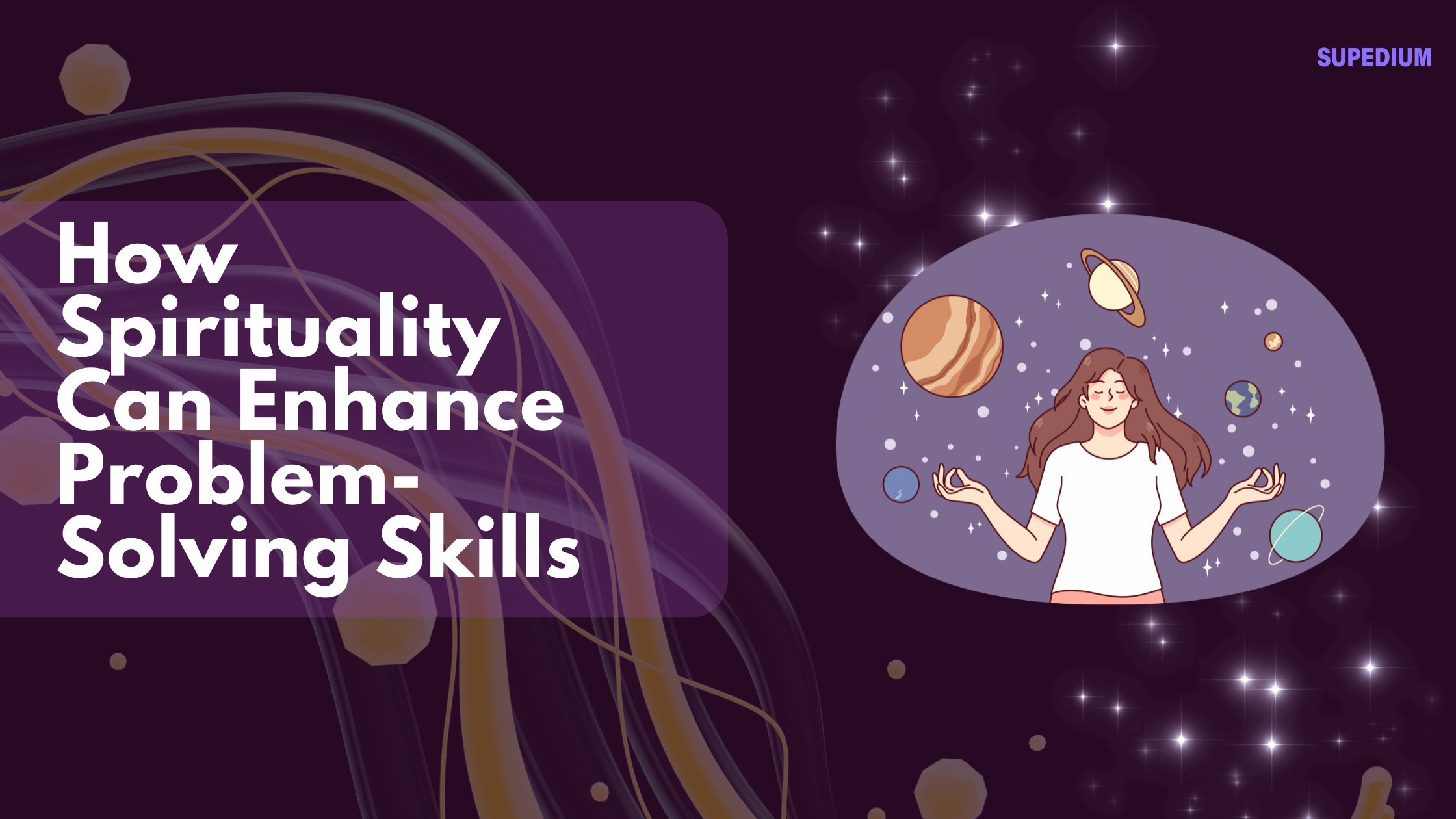Table of Contents
![]()
Introduction
Spirituality is a broad concept that encompasses personal beliefs, values, and practices that connect individuals to something greater than themselves. It often involves a sense of inner peace, purpose, and interconnectedness with the universe and others. In contrast to religion, which typically follows a structured doctrine, spirituality can be a more individualized experience.
In today’s fast-paced world, effective problem-solving skills are essential across various aspects of life, from personal relationships to professional environments. Problem-solving involves critical thinking, creativity, emotional intelligence, and ethical reasoning. This article explores how incorporating spirituality into our lives can enhance these vital skills, providing both cognitive benefits and practical applications.
Understanding Spirituality
Different Dimensions of Spirituality
Spirituality manifests in various forms, including personal beliefs, practices, and connections. Key dimensions include:
- Personal beliefs and values: Spirituality often reflects deeply held beliefs that guide actions and decisions.
- Connection to others and the universe: Many individuals find a sense of belonging and purpose through their connection to humanity and nature.
- Mindfulness and self-awareness: Spiritual practices frequently emphasize the importance of being present and aware of one’s thoughts and feelings.
Spiritual Practices and Their Impact
Engaging in spiritual practices can have profound effects on individuals, fostering a mindset conducive to effective problem-solving:
- Meditation: This practice enhances focus and clarity, allowing individuals to approach problems with a calm and centered mindset.
- Reflection and journaling: Taking time to reflect helps in processing experiences and gaining insights into personal challenges.
- Community involvement and service: Engaging with others fosters empathy and broadens perspectives, essential for collaborative problem-solving.
The Cognitive Benefits of Spirituality
Enhanced Creativity
Spirituality can significantly enhance creativity, an essential component of effective problem-solving. By fostering an open-minded approach, spirituality encourages divergent thinking. When individuals connect with their spiritual beliefs, they often cultivate a broader perspective, allowing them to view problems from multiple angles.
Improved Focus and Concentration
Mindfulness practices, integral to many spiritual traditions, can improve focus and concentration. Meditation, for example, trains the mind to reduce distractions and enhances cognitive clarity. This improved focus enables individuals to dissect problems methodically and identify viable solutions.
Emotional Resilience
Spirituality often provides tools for coping with stress and adversity. Practices such as gratitude and positive thinking can enhance emotional resilience, allowing individuals to approach challenges with a constructive mindset. This resilience is crucial for problem-solving, as it fosters perseverance and adaptability in the face of obstacles.
Spirituality and Critical Thinking
The Role of Intuition in Decision-Making
Spirituality encourages individuals to trust their instincts, balancing intuition with analytical thinking. Intuition, often honed through spiritual practices, can guide decision-making, helping individuals navigate complex problems effectively.
Encouraging an Exploratory Mindset
Spirituality promotes curiosity and an exploratory mindset. This openness to new ideas and experiences is vital in problem-solving, as it allows individuals to seek innovative solutions and embrace change.
Ethical Considerations in Problem-Solving
Spirituality often emphasizes ethical behavior and personal values. By aligning solutions with these values, individuals can make more meaningful and responsible decisions. Spirituality can guide ethical decision-making, ensuring that solutions consider the broader impact on others and the environment.
Practical Applications of Spirituality in Problem-Solving
Techniques to Integrate Spirituality into Daily Problem-Solving
Several techniques can help individuals incorporate spirituality into their problem-solving processes:
- Mindfulness techniques: Practicing mindfulness during decision-making can enhance clarity and reduce stress.
- Reflection exercises: Setting aside time for reflection can provide insights into personal challenges and potential solutions.
Case Studies or Examples
Real-life examples illustrate the power of spirituality in problem-solving:
- Personal stories: Many individuals report using spirituality to navigate life’s challenges, from career transitions to personal relationships.
- Organizational examples: Some companies incorporate spirituality into their workplace culture, promoting employee well-being and collaborative problem-solving.
Tools and Resources
Several resources are available for those interested in exploring spirituality and problem-solving further:
- Books and courses: Numerous authors and educators focus on the intersection of spirituality and personal development.
- Online communities: Forums and social media groups provide spaces for individuals to share experiences and support one another.
Challenges and Considerations
Misunderstandings About Spirituality
Despite its benefits, spirituality can be misunderstood. Common misconceptions may lead individuals to overlook its practical applications in problem-solving. It’s important to balance spirituality with evidence-based approaches to ensure comprehensive problem-solving.
Potential Pitfalls
There can be potential pitfalls in overly relying on spiritual practices. While spirituality offers valuable insights, it should complement, not replace, empirical methods and logical reasoning in problem-solving.
Conclusion
In summary, integrating spirituality into problem-solving processes can yield numerous benefits, enhancing creativity, focus, emotional resilience, and ethical decision-making. By exploring spiritual practices and fostering an open mindset, individuals can develop a holistic approach to challenges. As you navigate your own problems, consider how spirituality might offer guidance, insight, and a deeper connection to the world around you.
Share This




Be the first to comment